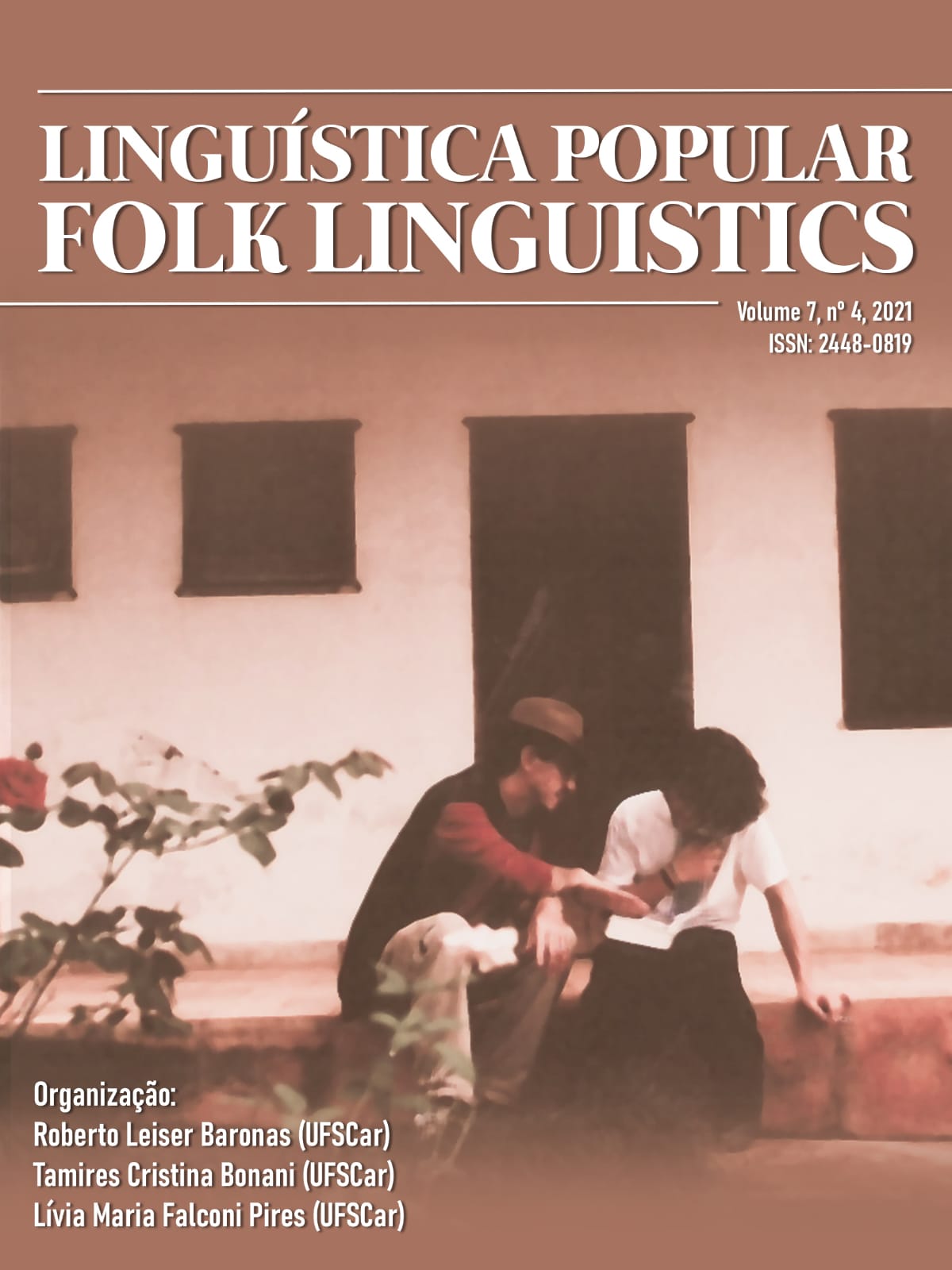O Linkedin e os não-linguistas: reflexões a partir de uma visada discursiva
Resumo
Neste artigo, iremos analisar a construção discursiva do perfil empresarial de uma não linguista que prescreve o uso normativo da língua escrita na rede social Linkedin. Para isso, faremos uma breve apresentação dos estudos sobre Linguística Popular (PAVEAU, 2020) para a classificação dessa não-linguista e sobre Cena da Enunciação (MAINGUENEAU, 2015) para entender de que modo essas práticas linguísticas, aliadas a gramática normativa da língua portuguesa em interface com o digital, constroem teorias espontâneas sobre uma possível língua profissional. Isto porque entendemos que essas práticas linguísticas realizadas por uma não-linguista fazem emergir estratégias específicas sobre a disseminação de um ideal sobre língua e, ao mesmo tempo, revela a construção de uma teoria sobre língua profissional, algo novo diante do que se entende sobre língua em relação às teorias formalizadas no ambiente científico e acadêmico. Desse modo, nossa investigação pretende verificar como essas práticas linguísticas espontâneas (normativistas e intervencionistas) são realizadas por Dalva, uma professora, mentora, empresária e Top Voice 2020, a partir da análise do conteúdo (autoral) descritivo de sua página profissional, na rede social Linkedin, enquanto produção sobre a língua que poderia caracterizá-la como uma linguista popular.
Referências
BARONAS, Roberto Leiser. COX, Maria Inês Pagliarini. Apresentação do Dossiê. Linguística popular/folk linguistics e linguística científica: Em vez do versus, propomos a integração. In: Revista Fórum Linguístico. Volume 14, no. 4, 2019. p. 4254 - 4256. Disponível em: <https://periodicos.ufsc.br/index.php/forum/issue/view/3003>.
BARONAS, Roberto Leiser. CONTI, Tamires Bonani. Notas sobre a possibilidade de um trabalho no carrefour epistemológico entre a linguística popular e os estudos do discurso. In: Revista Fórum Linguístico. Volume 14, no. 4, 2019. p. 4285 - 4294. Disponível em: <https://periodicos.ufsc.br/index.php/forum/article/view/1984-8412.2019v16n4p4285>.
MAINGUENAU, Dominique. Discurso e análise do discurso / Dominique Mainguenau; tradução Sírio Possenti.- 1.ed. - São Paulo; Parábola Editorial, 2015. 192p
______. Cenas da enunciação. Organização da tradução: Sírio Possenti, Maria Cecília Spuza-e-Silva. 1a. Edição. Curitiba-PR: Criar edições, 2006. 182p.
NIEDZIELSKI, Nancy. A.; PRESTON, Dennis. R. Folk Linguistics. Berlin, New York: de Gruyter, 2000.
PAVEAU, Marie-Anne; ACHARD-BAYLE, Guy. Linguística popular - a linguística ‘fora do templo’: Definição, geografia e dimensões. Pratiques: linguistique, littérature e didactique, número 139/140. Paris, v. 16 n. 4, dez. 2019. Disponível em: https://periodicos.ufsc.br/index.php/forum/article/view/1984-8412.2019v16n4p4257. Acesso em: 20 fev. 2021.
PAVEAU, Marie-Anne. Linguística folk: uma introdução. Organizado por Roberto Leiser Baronas, Tamires Cristina Bonani Conti e Julia Lourenço Costa. Araraquara: Letraria, 2020. Disponível em: <https://www.letraria.net/linguistica-folk-uma-introducao/>. Acesso em 5 de maio 2021.
______. Não linguistas fazem linguística? Uma abordagem antieliminativa das ideias populares. Trad: Phellipe Marcel da Silva Esteves In: Revista Policromias, Ano III, Dezembro, 2018. p.21-45. Disponível em: <https://revistas.ufrj.br/index.php/policromias/article/viewFile/21267/12729>. Acesso em 5 de maio de 2021.
Downloads
Publicado
Como Citar
Edição
Seção
Licença
Os autores concordam com os termos da Declaração de Direito Autoral, que se aplicará a esta submissão caso seja publicada nesta revista (comentários ao editor podem ser incluídos a seguir).

